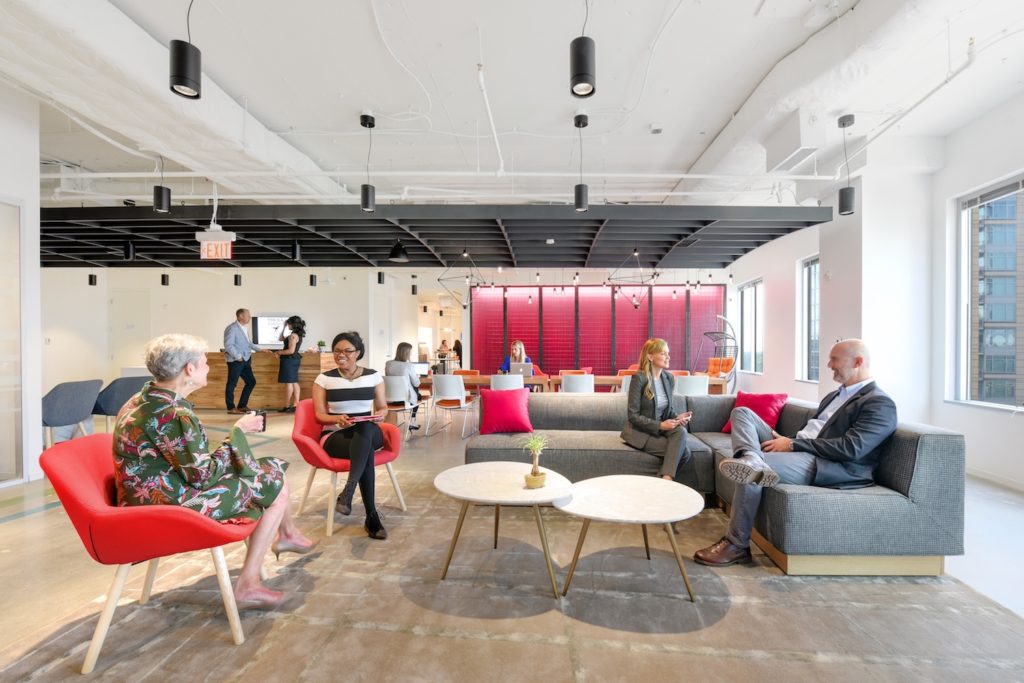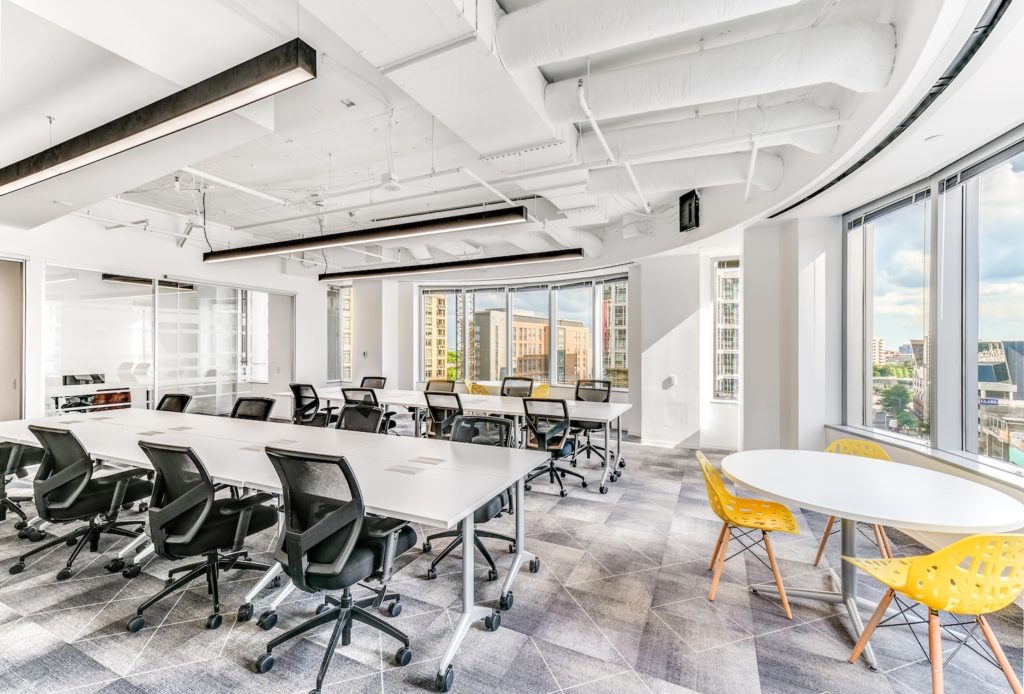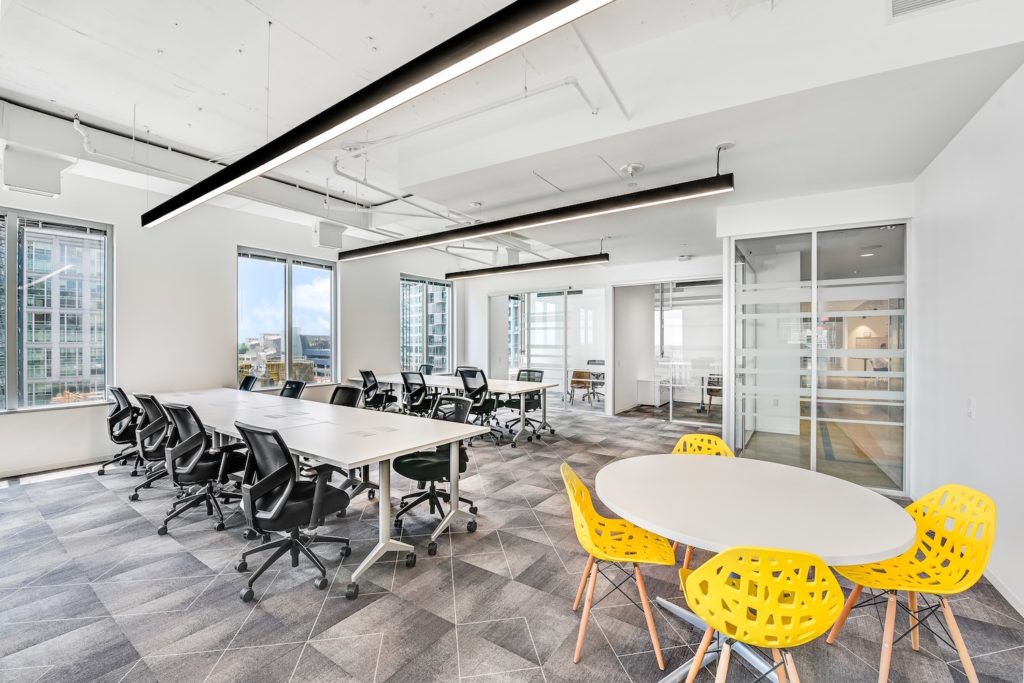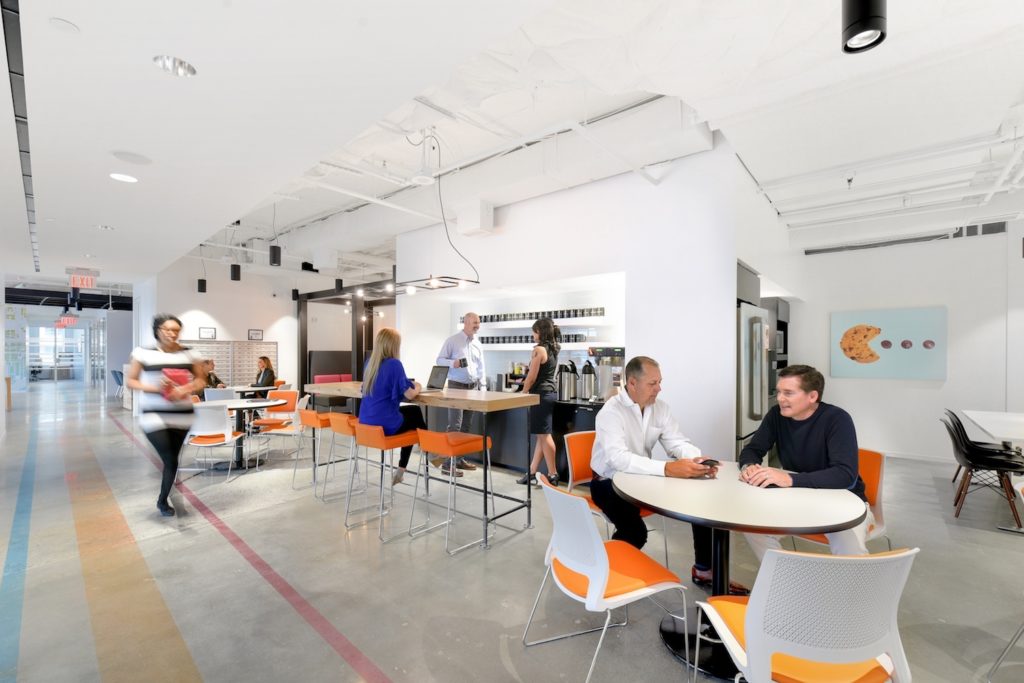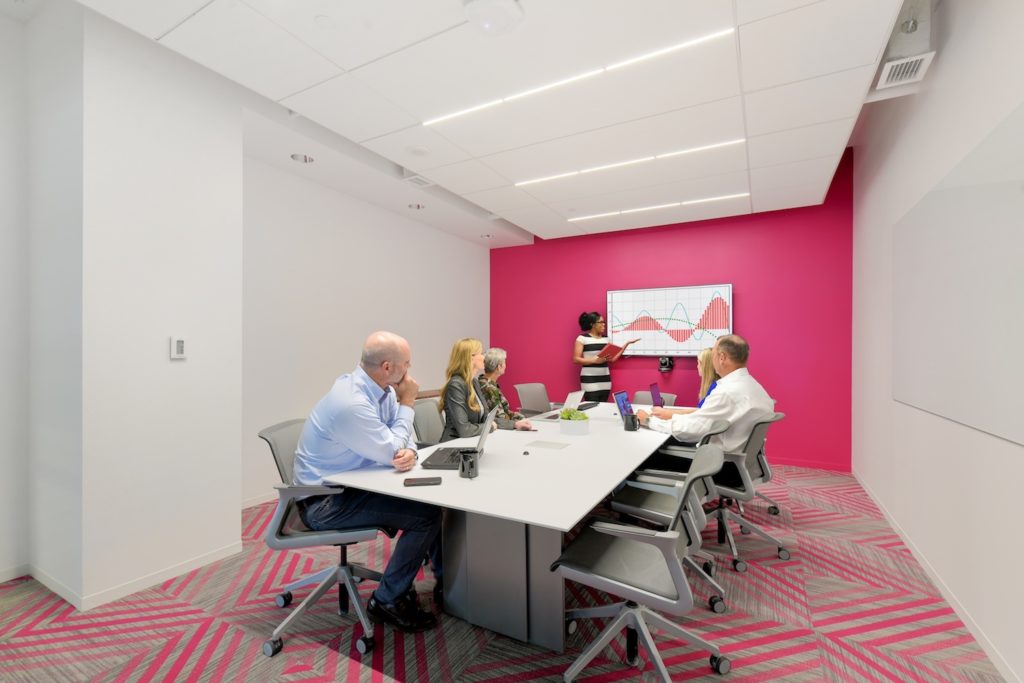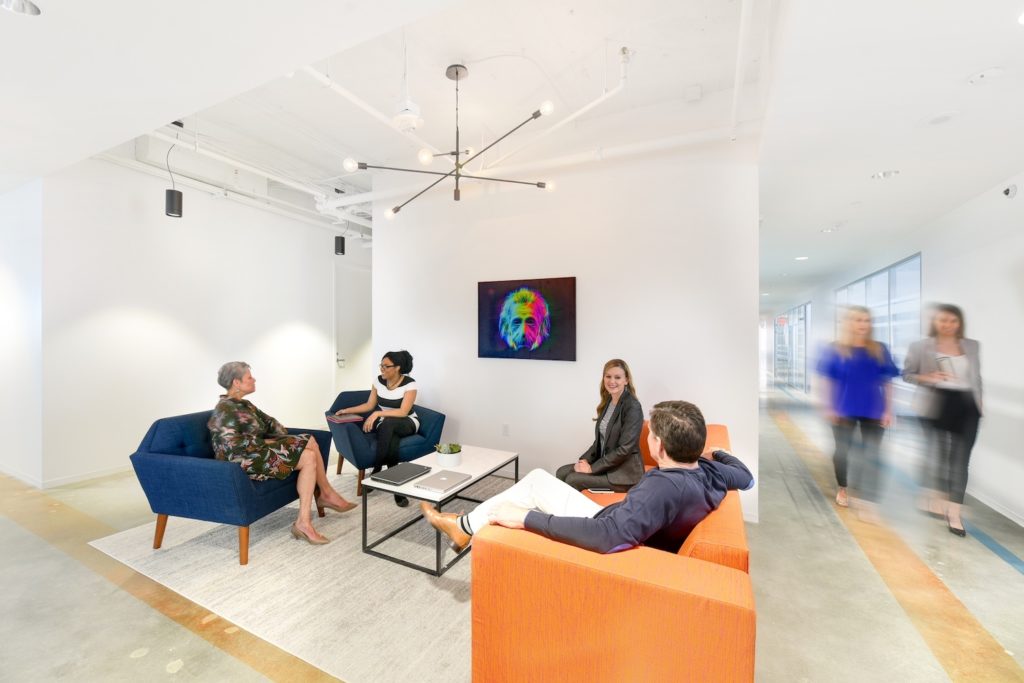Since people have been working in offices, there have been trailblazers searching for different ways to structure the workplace.
Well, maybe that’s a bit of an overstatement, but it’s undoubtedly true that innovators are always looking for different ways to engage with their environments. Naturally, that extends to the work environment. Enter coworking, stage right!
In a nutshell, coworking is the practice of shared workspaces. Multiple unrelated companies work in the same building, often utilizing the operator’s administrative and amenity functions. In today’s modern and ever-changing office world, the fastest growing alternative to a traditional office space is a coworking space.
So, where do coworking spaces fit into the tradition of office spaces? The way people work and want to work has changed over the years with the increased capabilities of technology as well as the way people want to work. In order to attract top talent and younger demographics, many companies are ditching traditional spaces in favor of the more flexible coworking model.
The coworking industry has become a global phenomenon. Around 2008-2010, more operators joined the market, but in recent years the industry has just exploded. According to Emergent Research, over 1000 new coworking spaces opened in the second half of 2018 — almost half of which are located in the U.S.
TechSpace, one of the first operators in the coworking space industry, was established in 1997 and opened in the Ballston area in June 2018.
Typically, new or growing companies don’t have the funds (or the desire) to start in traditional spaces, but they also don’t know where their company will be in one year, let alone five. Two to five-year terms are standard minimums for traditional offices.
Most start-ups don’t want to tie up their capital with office leases — they like the flexibility of shorter terms provided by coworking spaces, as they can easily accommodate growth and change. However, large enterprise companies are now housing divisions of their companies at coworking spaces.
Coworking isn’t just for large companies or start-ups, though. What other uses can coworking spaces provide? Many coworking spaces, including TechSpace, provide on-demand conference rooms for members and non-members. For those who are working at home but need to meet clients in a professional environment, coworking spaces are ideal.
At TechSpace, you can book by the hour for a variety of size meeting spaces. TechSpace also offers virtual services, such as mailing addresses and business phone numbers, and call answering by a professional receptionist.
Many people ask what kinds of companies are best served by coworking spaces? The answer is many industries are actually well-suited to work in coworking spaces. Since opening in June 2018 at our newest Ballston location at 4075 Wilson Boulevard, we’ve experienced a rapid influx of businesses that have ties to the federal government, but also see a lot of growing tech companies. It’s interesting to note that despite the different sectors in which they operate, all businesses have become reliant on a superior technology infrastructure like the one TechSpace provides.
Our Ballston location has experienced rapid growth and has quickly leased up in less than one year. “This is a very obvious indicator that businesses in this market were starved for flexible, short-term office space,” said Brendan McGee, VP at TechSpace. “In addition to our rapid growth, it has been wonderful to see how warmly TechSpace has been embraced by local businesses in the Ballston community.
In our first year alone we’ve established great relationships with Taste of Arlington and ARLnow. It was also a great omen for us when on our Grand Opening night, the Washington Capitals won the Stanley Cup!” (We’re neighbors — their practice facility is just down the street)
So — is coworking the right path for your start-up or company? Learn more about why TechSpace’s coworking offices can be the right fit for your business!


